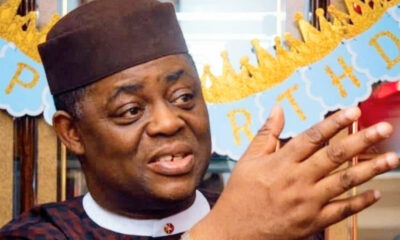Business
Updated: NNPC debunks claims Port Harcourt refinery trucking-out old product

Updated: NNPC debunks claims Port Harcourt refinery trucking-out old product
The Nigerian National Petroleum Company (NNPC) Limited has denied claims by a community leader in Alesa, Rivers State, alleging that the Port Harcourt refinery is not yet producing fuel.
In a statement released on Friday, NNPC spokesperson Olufemi Soneye criticized the comment made by the community leader, it was based on ignorance about refinery operations.
Soneye explained that while he would have typically ignored such remarks, he felt compelled to respond in order to clarify the situation.
Timothy Mgbere, a leader in the Alesa community, appeared on national television on Thursday, where he accused the NNPCL of misleading Nigerians by claiming that the Port Harcourt refinery was already processing crude oil.
READ ALSO:
- Many dead as boat carrying 200 people capsizes in Niger State
- Container from truck falls on couple’s car in Oyo
- No child should go to bed hungry, Tinubu seeks French investment in Nigeria’s food security
But Soneye said the Port Harcourt refinery was currently operating at 90% capacity.
He emphasized that the allegations lacked merit and were inconsistent with the facts.
The NNPC spokesperson noted that the community leader had acknowledged fuel being loaded out from the refinery’s gantry but dismissed it as “old stock” from the previous refinery, which, Soneye argued, further undermined the credibility of the allegations.
“He (Mgbere) claimed that the old Port Harcourt Refinery was only operating skeletally and was not processing PMS. His proof was that the PMS truck-out was done at the gantry of the new Port Harcourt Refinery as against the gantry of the old Port Harcourt Refinery.
“This betrays his scant knowledge of the operations of the refinery. The old and new Port Harcourt refineries have since been integrated with one single terminal for product load-out.
“They share common utilities like power and storage tanks. This means that storage tanks and loading gantry which he claimed belong to the new Port-Harcourt Refinery can also receive products from the Old Port Harcourt Refinery
“The nameplate capacity of the refinery is 60,000 barrels of oil per day. It is currently producing at 90 per cent throughput which translates to Straight-Run gasoline (Naphtha) blended into 1.4 million liters of PMS, aside from other products like diesel and kerosene.
“We call on the general public to disregard the claims of the self-acclaimed ‘community person’ which are obviously borne out of sheer mischief and blatant display of ignorance,” Soneye said.
Port Harcourt refinery now 90% operational, says NNPC, tackles community leader claim
Railway
FG hands over $3bn Port Harcourt-Aba railway project to NRC
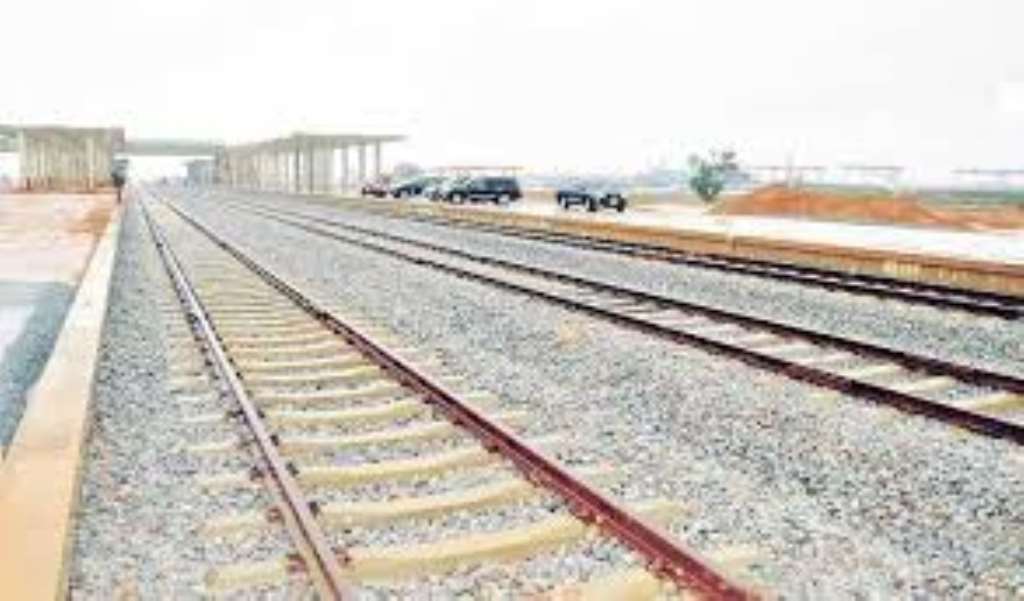
FG hands over $3bn Port Harcourt-Aba railway project to NRC
The 62-kilometre, $3.02 billion Port Harcourt-Aba railway project has been completed by Federal Government and handed over to the Nigerian Railway Corporation (NRC).
The Port Harcourt-Aba section is part of the larger Port Harcourt-Maiduguri eastern narrow gauge railway project, initiated under the administration of President Muhammadu Buhari.
The project supervisor, Federal Ministry of Transportation, Ayo Dada, formally transferred the railway to the NRC during a brief ceremony held on Thursday in Port Harcourt.
He said that the project, completed in May, had significantly improved passenger movement between Rivers and Abia, thereby enhancing their economies.
“The assets handed over include dismantled tracks measuring 283.060 km, rehabilitated and reconstructed 62.800 km of subgrade and the laying of 62.800 km of rail for the main line,” Dada said.
“This includes the laying of rail for sliding lines covering 5.690 km and the reconstruction of 27 sets of turnouts at Port Harcourt, Elelenwo, Obuzor, Umugo and Aba Stations, among others.”
Dada said that with the handover of the Port Harcourt–Aba section, the Federal Government would focus on the Port Harcourt–Maiduguri phase of the project.
READ ALSO:
- Naira appreciates to N1,740/$ in parallel market
- Reform Bills propose 55 per cent VAT revenue for states
- Nigeria ranks 4th among Africa’s most improved visa friendly nations
“The contractor has submitted the technical specifications and maintenance manual for the Port Harcourt–Aba section to the consultants.
“The ministry is committed to completing this project, which will foster national development,” he said.
The Managing Director of the NRC, Ben Iloanusi, commended the Federal Government and the ministry of transportation for the timely completion and transfer of the project.
Iloanusi, represented by the NRC Deputy Manager (Civil), Adesegun Ogunade, said that the railway had greatly benefited Nigerians seeking affordable transportation options.
“The rail line, now in operation, has started mitigating the impact of high transportation costs caused by economic challenges,” he said.
“Train services have been running for some time and passengers have reported that it has made commuting between Port Harcourt and Aba more convenient, faster and cheaper.
“People are already experiencing the benefits of this government’s policies and programmes.’’
He assured that the Port Harcourt–Maiduguri section would also be completed in due course, emphasising that adequate security arrangements had been made to ensure the safety of workers and passengers.
FG hands over $3bn Port Harcourt-Aba railway project to NRC
Business
Naira appreciates to N1,740/$ in parallel market

Naira appreciates to N1,740/$ in parallel market
The Naira yesterday appreciated to N1,740 per dollar in the parallel market from N1,745 per dollar on Wednesday.
Likewise, the Naira appreciated to N1,644.86 per dollar in the Nigerian Autonomous Foreign Exchange Market, NAFEM.
Data from FMDQ showed that the indicative exchange rate for NAFEM fell to N1,644.86 per dollar from N1,660.83 per dollar on Wednesday, indicating N15.97 appreciation for the naira.
READ ALSO:
- Reform Bills propose 55 per cent VAT revenue for states
- Nigeria ranks 4th among Africa’s most improved visa friendly nations
- 2023 Hajj: NAHCON refunds N5.3b to states, tour operators
The volume of dollars traded (turnover) increased by 66 percent to $560.34 million from $337.07 million traded on Wednesday. Consequently, the margin between the parallel market and NAFEM rate widened to N95.14 per dollar from N84.17 per dollar on Wednesday.
Naira appreciates to N1,740/$ in parallel market
Business
Reform Bills propose 55 per cent VAT revenue for states
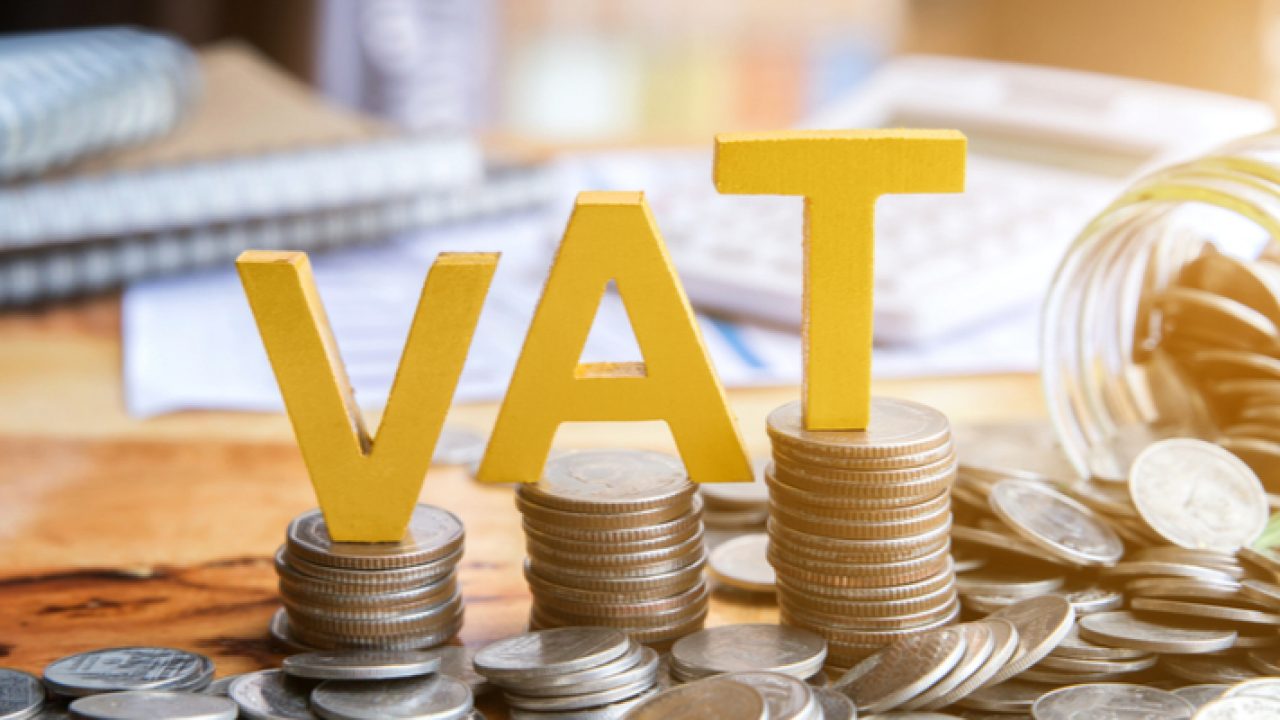
Reform Bills propose 55 per cent VAT revenue for states
More insights into the Tax Reform Bills under consideration by the National Assembly were given yesterday during a debate at the Senate.
Should the Bills be passed as proposed and signed by the President, states will get 55 per cent of the Value Added Tax (VAT).
Senate Leader Opeyemi Bamidele made this know during the debate, which proceeded the passage of the Bills through first and second reading.
In the House of Representatives, lawmakers chose to continue consultations on the Bill until the next legislative day (Tuesday).
The four Tax Reform Bills sent by the Executive are:
•A Bill for an Act to Establish the Joint Revenue Board, the Tax Appeal Tribunal and the Office of the Tax Ombudsman for the harmonisation, coordination and settlement of disputes arising from revenue administration in Nigeria and for related matters, 2024.
•A Bill for an Act to Repeal the Federal Inland Revenue Service (Establishment) Act, No.13, 2007 and enact the Nigeria Revenue Service (Establishment) Act to Establish the Nigeria Revenue Service, charged with powers of assessment, collection of, and accounting for revenue accruable to the Government of the Federation, and for related matters, 2024.
•A Bill for an Act to Provide for the assessment, collection of, and accounting for revenue accruing to the Federation, Federal, States and Local Governments; prescribe the powers and functions of tax authorities, and for related matters, 2024.
•A Bill for an Act to Repeal certain Acts on taxation and consolidate the legal frameworks relating to taxation and enact the Nigeria Tax Act to provide for taxation of income, transactions and instruments, and for related matters, 2024.”
READ ALSO:
- Nigeria ranks 4th among Africa’s most improved visa friendly nations
- 2023 Hajj: NAHCON refunds N5.3b to states, tour operators
- ‘How I collected $400,000 for Emefiele as his aide’
Bamidele, who sponsored the bills, shed light on the sharing formula, saying: “Unlike what is obtainable under the existing tax regime whereby the Federal Government takes a lion share of VAT revenues, it is proposed that the sharing formula should allow State Governments share 55% of VAT revenue from the current 15% to 10% sharing formula.”
But former Senate Chief Whip Ali Ndume, who opposed the bills, called for their withdrawal to allow for more consultations with stakeholders.
On Wednesday, when Presidential Economic Team members appeared before the Senate to explain the content of the bills, Ndume and Senator Abdul Ningi tried to stop them but the attempt was futile.
The Senate held a one-hour closed door session, where the senators agreed to debate the general principles of the bills.
Leading the debate, Bamidele said the proposals should be seen as part of the required legislative intervention to support ongoing fiscal and tax reforms needed to reposition the economy for growth and productivity.
Bamidele said: “These bills should be considered with great sense of patriotism and exercise of the powers of the National Assembly under Section 59 of the Constitution regarding imposition of taxes. I therefore, urge my colleagues to support these bills for second reading.”
Explaining the elements of the bills, the Senate Leader said they would overhaul the country’s tax system, simplify the tax landscape, reduce the burden on small business and streamline how taxes are collected.
He stressed: “In broad terms, the four bills seek to ensure uniformity in tax revenue administration in Nigeria in accordance with the provisions of the Constitution, eliminate the incidents of double taxation across the country, deploy taxation as a tool to encourage private sector investments in critical industries and boost individual disposal incomes through targeted tax exemptions as captured in the various bills.
“In the area of tax exemptions, there is a proposal to exempt those whose salaries are not more than the minimum wage from P.A.Y.E deductions while small businesses with annual turnover of N50, 000,000 or less are equally exempted from payment of taxes.
READ ALSO:
- What NNPCL staff revealed about reported revival of PH Refinery – Farooq Kperogi
- FG hands over 15 CNG buses to transport unions
- EUROPA: Osimhen stars in Galatasaray draw, Man Utd win over Bodo/Glimt
“Similarly, there is a proposed huge reduction in company income tax from the current 30% to 25% by 2026.
“As part of deliberate attempt to curtail double taxation and multiplicity of taxes and levies, multiple taxes hitherto paid by companies under various tax heads, namely 2.5% education tax and 0.25% NASENI tax have been harmonised into a development level of 2% which by 2030, will be applied to fund the newly established student loan scheme, which will benefit many Nigerian youths.
“However, local governments’ share of VAT revenue remains unaffected. Relatedly, basic items consumed by Nigerian households such as food items, medical services and pharmaceuticals, educational fees, electricity, e.t.c., are exempted from VAT.
“Again, as part of efforts to ease the administration of income taxes and levies across the Federation, there is a reasonable effort made to consolidate core tax statutes and related tax legislations.
“Contrary to misrepresentations in the public domain regarding the intendment of the Bills under consideration, I wish to state that these Bills contains innovative people-oriented proposals as part of government’s deliberate fiscal and tax reform measures to cushion the effect of ongoing broader economic policies such as the removal of subsidy on petroleum products, renewed efforts to implement cost-reflective electricity tariffs in the power sector etc, on Nigerian citizens.”
The Chairman of Senate Committee on Finance, Sani Musa (APC – Niger East) supported the bills.
The senator representing Bayelsa West, Seriake Dickson, commended the Executive for coming up with the landmark tax reform bills.
He said the fiscal legislation would entrench fiscal federalism in Nigeria, if passed into law.
Dickson noted that Nigerians were paying taxes and the government at various levels has been using it to carry out developmental projects since the colonial era.
He said the situation changed when oil was discovered and the sub-national governments started relying on the Federation Accounts monthly allocations.
He pointed out that some stakeholders objected to the bills because there had not been proper consultation.
Dickson said: “The position of the Nigerian Governors Forum is legitimate. The Executive should carry out more enlightenment on the bills.
“The derivation is meant to encourage governors to be more productive. The proposed bills would enable states to boost revenue by creating enabling environment that could encourage investment.
“When companies are established in their states, the Pay As You Earn taxes that would be collected from workers of those companies will be paid to the state governments.
READ ALSO:
- Don’t leave Nigeria, health minister begs medical practitioners
- Four suspected traffic robbers apprehended in Lagos
- Super Eagles drop eight spots in latest FIFA ranking
“As a federalist, which I’ve been all my adult life, I see these bills as a move towards entrenching fiscal federalism in Nigeria, which I fully support.
“I use this opportunity to call on all my colleagues to agree that these bills, all four of them, should be passed for second reading to enable our committee, the experts and the general public participate in accordance with our rules.
Ndume, who opposed the bills, said he is against the timing of the bills, the provision for sharing tax revenue based on derivation and lack of broad-based consultation before they were presented.
Ndume’s position was countered by Senator Mohammed Tahir Monguno (APC Borno North), who said the views of stakeholders who oppose the bills should be collated at the public hearing.
He said the governors and traditional rulers are free to ventilate their opinions at the public hearing.
Monguno said Ndume’s position was not only strange to legislative process, but also a mere academic exercise’.
He said it was curious that Ndume, who was a Minority Leader in the House of Representatives, a Senate Leader, and immediate past Chief Whip of the Senate, could in spite of the cognate experience about lawmaking, come up with such arguments.
Monguno said: “I get to disagree with you that this bills should be withdrawn first and consultation should be held with the Nigerian Governors Forum and traditional rulers.
“We have a procedure, which is clearly and unambiguously stated in our rulebook for the process of lawmaking, and the Constitution, in a very clear and unambiguous manner, gave us the power to regulate our proceedings.
“Pursuant to Section 60 of the 1999 Constitution, as amended, we gave these rules to ourselves in order to guide our proceedings.
“The process of lawmaking is very clear and unambiguous as per this rule book. That after second reading, it will now be transmitted to the Committee for Public Hearing.
“In the course of the public hearing, Nigerians of all walks of life, will come, including the governors and traditional rulers. They are free to come and ventilate their opinion.”
Reform Bills propose 55 per cent VAT revenue for states
-

 Entertainment2 days ago
Entertainment2 days agoDavido: They want to cancel my show in Nigeria over economy comment
-
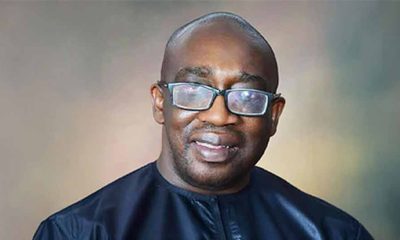
 metro2 days ago
metro2 days agoTinubu appoints Jami’u Abiola as Senior Special Assistant
-
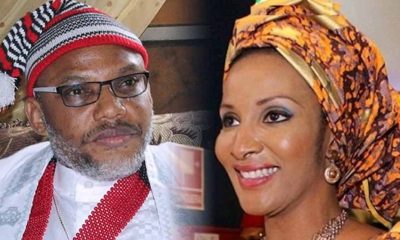
 metro3 days ago
metro3 days agoBianca raises hope Tinubu will free Nnamdi Kanu to restore peace in South-East
-
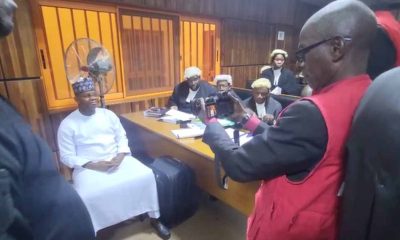
 metro2 days ago
metro2 days agoDrama as Yahaya Bello calms supporters after judge storms out of court over rowdiness
-

 metro2 days ago
metro2 days agoWhy we relocated Osun airport — Gov Adeleke
-

 metro1 day ago
metro1 day agoJUST IN: DSS arrests Kano-based activist over suspected Facebook post
-

 Business3 days ago
Business3 days agoPH refinery to blend 1.4-million litre petrol daily – NNPC
-

 News11 hours ago
News11 hours agoNo child should go to bed hungry, Tinubu seeks French investment in Nigeria’s food security

